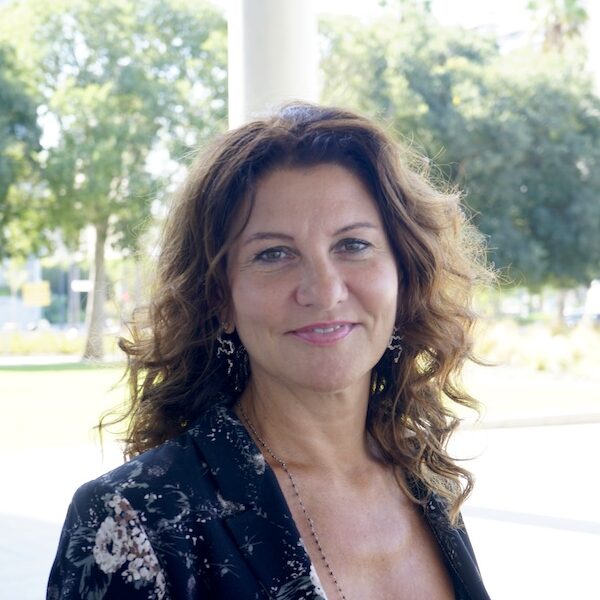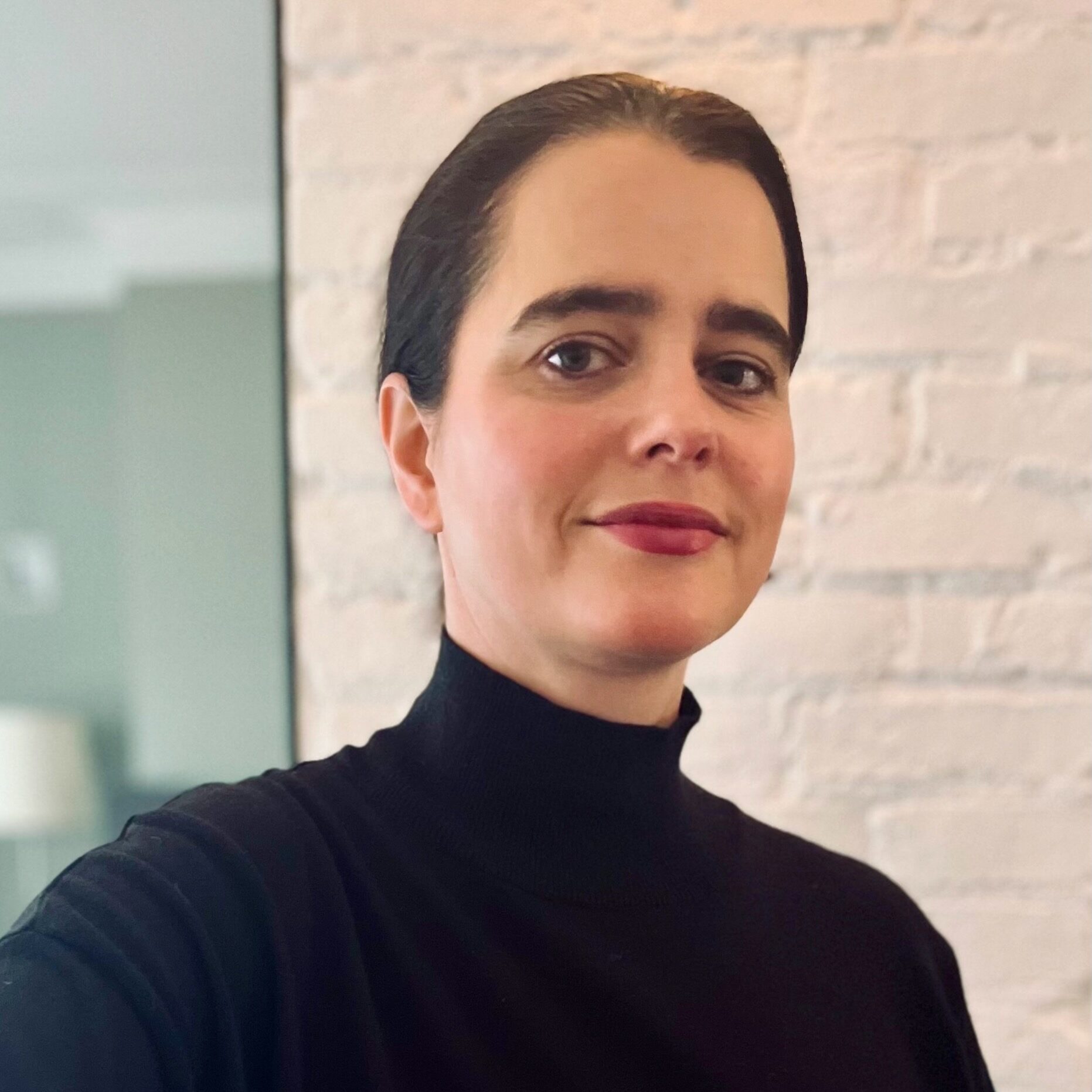Keynotes
Sustainable Digital Futures: Aligning Societal Values with Environmental Necessities
03/09/2025 – 09:00 hrs
As digital technologies increasingly shape our world, we face the dual challenge of ensuring these innovations address pressing environmental concerns while gaining widespread societal acceptance. This keynote explores Digital for Planet’s mission to create sustainable digital solutions that respect planetary boundaries while addressing human needs. Through our portfolio of Horizon Europe projects, we are pioneering frameworks and methodologies that embed sustainability principles into technological development from inception to implementation.
The presentation will highlight our 6G4Society project, which investigates how next-generation communication networks can be designed with environmental and social sustainability as core requirements rather than afterthoughts. By examining the intersection of technical capabilities, environmental impacts, and societal values, 6G4Society is developing pathways for telecommunications infrastructure that reduces ecological footprints while ensuring digital inclusivity and alignment with diverse community needs.
This keynote will share emerging insights on how stakeholders across the technology ecosystem can collaborate to create digital futures that are both environmentally viable and socially embraced—moving beyond technological determinism toward purposeful innovation that serves both people and planet.

Monique Calisti
Founder and President of Digital for Planet, CEO Martel Innovate, SwitzerlandBiography
Dr Monique Calisti is CEO and Head of Media and Consulting at Martel Innovate, a dynamic Swissbased consultancy with more than 20 years’ experience managing research and innovation projects across Europe and worldwide in the field of next generation internet technologies. Monique manages the company’s business and leads its strategic development, combining her technical ICT background with consolidated entrepreneurial experience and excellent communication skills.
Monique is an accomplished and passionate speaker and authority in the areas of Next Generation Internet, IoT, Artificial Intelligence, 5G, Smart Cities, Horizon 2020 and European digital policy. She has spoken at numerous conferences in Europe and beyond including the Mobile World Congress, Four Years From Now, DSI Fair (opening and closing address) and the EU’s Digital Assembly. Monique also gave a TEDx talk in Italian in early 2018 at Modena Salon.
Monique holds a Ph.D. in Artificial Intelligence from the Swiss Federal Institute of Technology of Lausanne, Switzerland, and a Ph.D. in Telecommunications Engineering from the University of Bologna, Italy. She has authored and edited many professional publications including books and more than 50 scientific papers. She has also managed and participated in hundreds of successful R&D project proposals.
Monique lives in Zurich, Switzerland with her family. Multitasking and multicultural, Monique is the mother of three children and is fluent in five languages.
What Values Will Shape 6G?
04/09/2025 – 09:00 hrs

Luiz DaSilva
Executive Director, Commonwealth Cyber Initiative and Bradley Professor of Cybersecurity, Virginia Tech, USABiography
Luiz A. DaSilva is the inaugural executive director of the Commonwealth Cyber Initiative (CCI), an organization bringing together 46 institutions of higher education in Virginia, USA, with a common mission of research, innovation, and workforce development in cybersecurity. He is also the Bradley Professor of Cybersecurity in the Department of Electrical and Computer Engineering at Virginia Tech. Prior to that, he was the telecommunications chairholder at Trinity College in Dublin, Ireland, and director of CONNECT – the Science Foundation Ireland Centre for Future Communications and Networks. DaSilva is a Fellow of the Institute of Electrical and Electronic Engineers (IEEE) for his contributions to cognitive networking and to resource management in wireless networks. He pioneered the application of game theory to analyze and design wireless networks, authoring the first book on the topic. He has also been an IEEE Communications Society Distinguished Lecturer, a Fellow of Trinity College Dublin, and a Virginia Tech College of Engineering Faculty Fell
The process of defining a vision for 6G is in full force and starting to move towards standardization. These discussions are typically centered around a set of performance and efficiency goals, expressed in metrics such as data rates, spectral efficiency, or latency. But technology is not values-free, and it is important to think about how social values can shape the decisions made in the development of a new generation of networks. How do we make responsible decisions that take into consideration how density of deployment or services offered by the network affect energy consumption? As artificial intelligence is deeply embedded in network control and management, how do we do so in a trustworthy manner? What are the market and supply chain implications of network disaggregation? How are cybersecurity and privacy integrated into network design, and how do these decisions reflect our societal values? What are the implications of integrated sensing and communication? This talk does not promise all the answers, but hopefully it will raise some questions that point to a different way to think about the evolution of network technology.
Media, Minds, and Messages: Exploring the Human Side of Technology for Social Good
05/09/2025 – 09:00 hrs

Karolien Poels
Full Professor of Strategic Communication and Persuasive Technologies, University of Antwerp, BelgiumBiography
Karolien Poels is Full Professor of Strategic Communication and Persuasive Technologies at the University of Antwerp, Belgium. Her work focuses on how strategic communication can address complex societal challenges, particularly through emotion-driven and technology-mediated processes. She is co-director of the Antwerp Social Lab, a core facility of the University of Antwerp, which focuses on psychophysiological and behavioral methods that capture human interactions in interpersonal and mediated contexts. Karolien has co-authored over 100 peer-reviewed journal articles and her work is widely cited. As former president of the Netherlands Flanders Communication Association (NeFCA) and currently the elected international liaison for International Communication Association (ICA)’s Communication Science and Biology division, she actively contributes to the international academic community.
Solutions designed to promote the social good can only be successful if they effectively reach their intended audience, who must then be willing to adopt thesolution, often involving some form of behavioral change. Achieving this often appears to be challenging, as it requires deep consideration of how the human mind works—embracing both rational and, more importantly, non-rational aspects of human behavior and decision-making. Fortunately, even seemingly irrational responses can be predictable, offering essential pathways for effective messages and interventions.
In this keynote, I will highlight recent insights from research conducted at our MIOS research group and the Antwerp Social Lab at the University of Antwerp. My work explores (strategic) communication surrounding complex societal challenges, particularly within social media and technology-mediated environments. Central to this research is the role of emotions and their interplay with cognitive processes and behavioral outcomes.
I will discuss current projects that investigate how emotions drive media use, such as boredom influencing smartphone usage and emotional regulation related to smartphone (dis)connection; how communication strategies can purposefully target emotional responses, including effective messages crafted to address societal issues such as vaccination or online hate; and how technologies can dynamically account for—and even guide—emotions and behaviors. Specific examples include emotion-sensitive technologies designed to encourage physical activity or empathic chatbots created to assist victims of online sexual harassment. Ultimately, understanding the human side of technology for social good is crucial for achieving a lasting impact.
